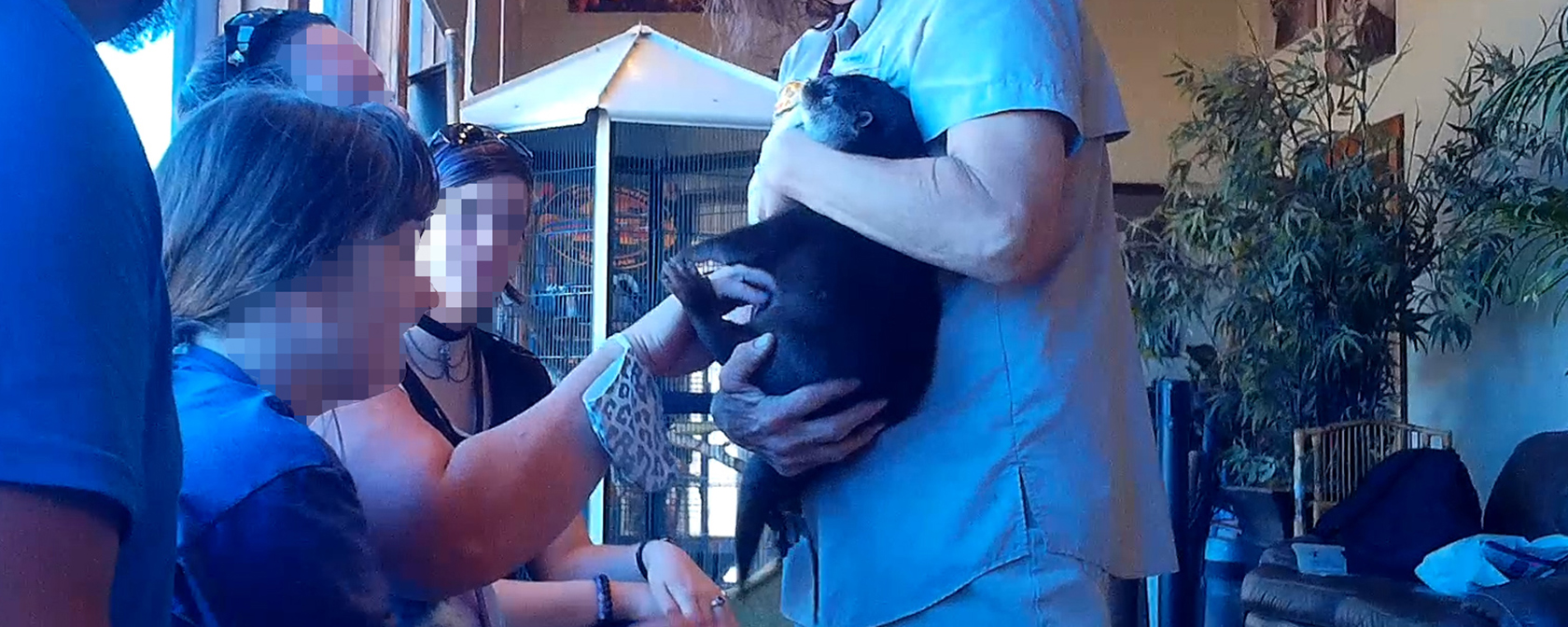By Sara Amundson and Kitty Block
In our recent USA Today opinion piece, we wrote about the cascade of events that sparked passage of the Big Cat Public Safety Act late last year. Among other factors, the pandemic-era Netflix sensation Tiger King laid bare the cruelties of the cub petting industry so devastating to animals, making millions of Americans aware of how ruthlessly operators treated and profited from big cats. From birth, tiger cubs are isolated from their mothers, consigned to shabby facilities and handed from one customer to the next, day after day. Then, as adults, they are forced into punishing cycles of repetitious breeding, killed to make space for new cubs or confined in somebody’s barren backyard enclosure.
Of course, we celebrated passage of the new law, which bans both public contact with big cats and keeping them as pets. But we also understood that we’d need to do more to help big cats and other animals kept by licensed exhibitors, including dozens of wild species held in hundreds of operations that market public contact with wild animals. These enterprises are historically underregulated, which leads to serious animal welfare and public safety concerns, and the industry has seen an alarming growth in recent years. According to U.S. Department of Agriculture data from 2021, of 2,182 licensed exhibitors, almost half offered public interactions with animals, a nearly twofold increase from 2019.
For these and other reasons, we moved quickly when the USDA announced plans for a new rule on public handling of wild and exotic animals, personnel training and environmental enrichment covering facilities regulated under the Animal Welfare Act. Such a rule is badly needed, and we will be making the case in our public comments to the agency.
We are taking a fundamental position that public handling of wildlife is not just inhumane but unsafe, and that its prohibition would be the only effective guarantee of animal welfare and public safety. The USDA’s limited resources, the growing number of exhibitors and the volume of public contact activities prevent the agency from effectively monitoring animal encounters.
The exploitation of lemurs, sloths, otters, kangaroos and wallabies for close encounters is on the rise, and so is the cruelty associated with using wild animals for public handling by perpetuating the culture that created the big cat crisis in this country. These interactions not only expose the individual animals to trauma and stress, but they also provide free advertising for the exotic pet industry, which benefits from the wildlife selfies that saturate social media.
Notwithstanding our opposition to all public contact, we will offer our assessment of the USDA’s proposed rule, pointing out the physical dangers that close contact presents in the form of human and animal injury or animal death, and the significant risks of disease transfer between humans and animals. Among other things, we’re pushing for clarity in the definition of certain handling practices and advocating for appropriate barriers to ensure the safety of animals and human beings. We’re taking a strong position against the use of aversive stimuli (such as the use of prong collars on cheetahs) in handling and against any unnecessary surgical procedures (such as declawing and scent gland removal).
You can voice your support for tighter federal regulations on the public handling of wild and exotic animals with a short, friendly communication of encouragement. You can also refuse to buy tickets for any facility or attraction that allows the public handling of wildlife and help raise awareness by explaining this decision to your friends and family.
The Big Cat Public Safety Act’s passage and enforcement will do so much for the big cats who were bred and used for profit by cub-petting facilities and roadside zoos. But much more can be done for wild animals of all kinds who are stuck in attractions and being seen as little more than Instagrammable objects.
Kitty Block is CEO of the Humane Society of the United States.
